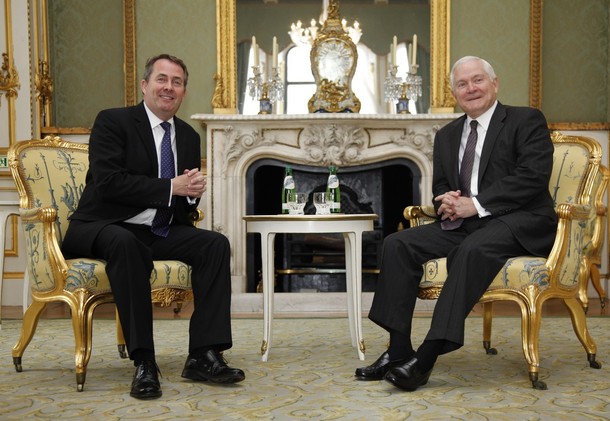
From Craig Whitlock, the Washington Post: European allies are bracing for their deepest cuts in military spending since the end of the Cold War, fueling concerns in Washington that an already wide gap in military power between the United States and the rest of NATO will grow. …
"We know that we’ve got financial constraints," [British Defense Secretary, Liam] Fox said Tuesday in a joint news conference with [Defense Secretary Robert] Gates. "We’ve inherited a train wreck in the economy."
Gen. David Richards, the chief of the British army, acknowledged Tuesday that some major military programs are in trouble.
"The most important long-term strategic factor in our security is economic prosperity," he said at a security conference. "If that is so, must we in defense accept that not all our cherished programs will survive?"
Malcolm Chalmers, an analyst at the Royal United Services Institute, a think tank aligned with the Defense Ministry, said "optimistic" projections suggested that Britain could be forced to cut its active-duty forces by 20 percent over the next decade. The British military could see its total number of aircraft reduced by a quarter, and the navy could have its fleet cut by a similar amount.
"The size of the total reduction is likely to be quite considerable," he said. "The fiscal pressures in Europe, not least in the U.K., are pretty inexorable. …"
Other NATO leaders, who are expected to gather in Brussels for meetings Thursday and Friday, warned that the long-term consequences could be dire if European lawmakers, in search of a quick budget fix, squeeze their militaries too much.
"We have to take care not to cut too much or in the wrong way, that we might jeopardize our security in the future," NATO Secretary General Anders Fogh Rasmussen said Monday in Brussels. "After all, economic prosperity depends on security, too."
For many European governments trying to recover from the global financial crisis, their armed forces are prime candidates for the chopping block. (photo: Getty)
Image: getty%206%208%2010%20Liam%20Fox%20Robert%20Gates.jpg
